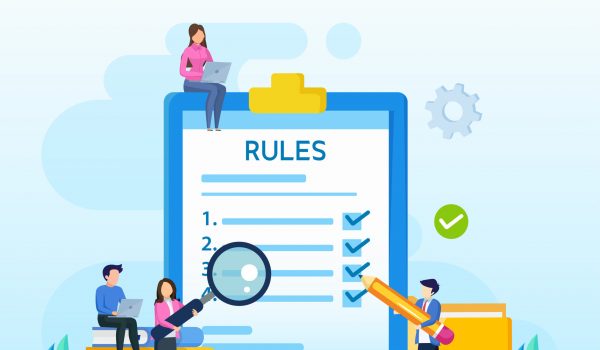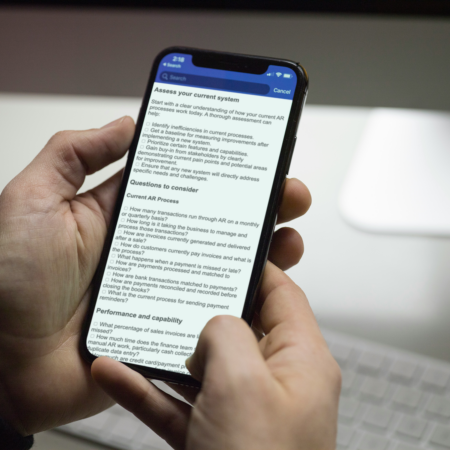
If you get a queasy feeling from thinking about adopting new accounting software as an accountant, you’re not alone. Plenty of financial professionals get nervous about the possibility that increasingly sophisticated software or artificial intelligence could replace them at their jobs.
But remember, software and artificial intelligence (“AI”) haven’t eliminated the need for human accountants. You’re not facing a future where professional accounting software competes with you or edges you out of your livelihood. Instead, most experts agree that now, more than ever, software will help finance professionals make valuable strategic decisions to achieve greater productivity and efficiency.
Rather than eliminating your career, accounting software can improve it, eliminating drudgery, making your work more effective, and moving you up the chain of command into more creative tasks. To help you adapt, we’ve written this guide to accounting automation for accountants.
We’ll show you what to look for in the best professional accounting software, and how to pick the right bookkeeping program for your organization’s accounting department.
Read on and learn how accounting automation can enhance your career instead of ending it.
Accounting Software For Accountants: The Benefits
Let’s look at a few of the impressive benefits of accounting software—not just for companies, but for the accountants who work for them.
A Brief History Of Accounting Automation
Accounting automation has been helping the profession for decades. In the 1950s, General Electric purchased a Univac mainframe computer to run payroll. In 1979, Visicalc, the original spreadsheet software, saved accountants hours of bookkeeping work by turning some of their repetitive calculations over to an algorithm.
Accounting Software Saves Time
In the 21st century, accounting software for accountants lets you automate more than Univac ever could, and you don’t have to know how to code. Accountants software can take over mundane tasks like tracking inventory, converting currency, and consolidating financial data from your clients’ subsidiaries.
With the best accounting software for accountants, you won’t have to spend as much time doing routine data entry and number entry. That efficiency frees you up to offer more financial judgment and insights to your clients, which makes you indispensable to them.
Accounting automation still can’t match an accountant’s ability to offer informed judgment about long-range business plans, strategic decisions, and complex regulatory questions. Good software can improve your judgment by making it easier for you to access the data analysis your clients absolutely need.
Accounting Software For Accountants: What To Look For
Unlike the days when Visicalc was king, today you have a huge range of professional accounting software to choose from. You can narrow down the possibilities by defining what you need before you start to shop.
- Do you need to provide data to multiple people in different offices?
- Is mobile accounting useful to you?
- How many general ledger accounts do you need to maintain?
- How much is your software budget?
- What features are absolutely essential, and which are optional?
The answers to these questions will guide you in your accounting software search. What qualifies as the best accounting software will vary between businesses, depending on the complexity of your work, the size of your company, and the industry-specific accounting needs your clients have. Some features, however, benefit almost every kind of accountant.
1. Cloud-based accounting software
When you work in the cloud, it’s easier to store data and back it up. You won’t run out of storage space no matter how big your business grows. Cloud storage is also an asset if you have to access your data on multiple devices or make it accessible to colleagues and clients.
As a native Salesforce app, Accounting Seed’s accounting software stores and backs up your data in the cloud. Here’s a helpful resource from Salesforce on the benefits of the cloud.
2. Billing customers
Accounting software for accountants makes it easier to track billing and collect payments. With accounting automation, you can send off an invoice as soon as a sale closes, or set regular customers up with a recurring billing plan.
3. Paying Vendors
Writing checks, ordering checks, and recording business expenses can use up a lot of time, particularly if your company has a large workforce submitting expense reports. A good accounting program for accountants can print checks straight from the cloud, automate payments, and record purchases in accounts payable as soon as they occur.
How Can You Modernize Vendor Payment Processes? Read our guide to find out.
4. Entries In The General Ledger
Accounting software for accountants can format your ledger to include and name as many accounts as your company’s need—and eliminate the ones they don’t. If your organization does business overseas, accounting automation can handle the currency conversions for transactions recorded in the ledger. (Learn more in our Foreign Exchange Accounting guide.)
Optical scanning technology can enter a hard-copy invoice or bill directly into your accounting program. That reduces the risk of error that comes with manual data entry.
5. Dashboards and Reports
Once accounting automation takes over the routine parts of your job, it frees you up to provide company leadership with deeper analyses. Good accounting software for accountants offers dashboards that make it easy to study sales metrics, accounts payable, cash flow, and other business financials.
A well-designed interface will help you create reports and present the numbers to your bosses in an easily understandable way.
With Accounting Seed, your financial data is pulled into relevant Salesforce dashboards as well, making it easier to access data from your Content Management System (CMS.) Learn more about leveraging Salesforce and Accounting Seed dashboards for your business in these helpful guides:
- Best Financial Dashboards for Making Educated Business Decisions
- What is a Salesforce Dynamic Dashboard? Everything to Know
- Salesforce Joined Reports: What Are They & Why Do You Need Them?
6. Inventory and Orders
Monitoring inventory under a traditional system requires a lot of manual labor, particularly if a client has multiple warehouses and sales outlets. Accounting automation can simplify things by automatically adjusting inventory levels when a sale goes through.
Accounting software can track inventory levels in real time. It can reserve inventory for specific customer orders, and purchase replacement inventory if a level sinks too low.
7. Project Accounting
Without accounting automation, project accounting requires extra data entry. You have to track the expenses and revenue associated with each project, then eventually re-enter the numbers into the general ledger. Accounting software for accountants can integrate project ledgers with general ledgers. You only have to enter a transaction once to show up in both account books.
Looking for some pro tips for improving your project accounting processes? Explore the Guide to Project Accounting.
8. Tax Accounting
Tracking taxes—income tax, sales tax, property tax, payroll tax, and so on—and all the related exemptions, deductions, and rates can become a massive drain on your time. If a company sells retail goods in, say, six jurisdictions, that often means you’ll have to track six different sales tax rates. Worse, rates and rules can change any time a local, state, or federal government decides that it’s necessary.
Accounting automation takes the responsibility off your hands for tracking rates and calculating taxes. You’ll have more time to advise executive leadership on how to minimize their tax bill, instead of just calculating it.
Learn more about Accounting Seed’s sales tax accounting automation.
9. Data Security
Internal data stored in your accounting software would almost certainly be valuable to your competition. The risk of external or internal hacking is a fact of life, but the best accounting software for accountants comes with solid security features. These defenses may include a secure API, two-factor authentication, and monitoring for possible data breaches.
Learn more in our guide to Accounting Cybersecurity: Everything to Know.
10. Configuration and Customization
Different accounting departments need different accounting automation features. If you specialize in working with restaurants, your industry-based accounting needs will differ from, say, if you worked with banks or oil companies. Buying software you can customize and configure to suit your accountants’ needs is ideal. For example, the program you buy should be scalable, to handle more clients and accounts as your business grows.
Your content goes here. Edit or remove this text inline or in the module Content settings. You can also style every aspect of this content in the module Design settings and even apply custom CSS to this text in the module Advanced settings.
Accounting Seed Has The Solutions
Accounting Seed delivers a top-rated accounting solution for accountants, from project accounting to financial dashboards, transaction tracking, and tax accounting. Configuring the software is as easy as pointing and clicking, with no coding needed. If you use Salesforce, Accounting Seed has a built-in capacity to integrate your information to your content management system with our native Salesforce Platform.
Using Accounting Seed improves your workflows and helps you get more done in less time. It improves every facet of your job and makes you a more valuable advisor to your stakeholders. Ask for a demo and see how accounting automation can change your professional life for the better today.
Read on and check out our accounting blog for more pro tips:
- Top 7 Issues Accountants Face Today
- Small Business Accounting Tips
- Startup Accounting Tips: Scaling a Growing Startup
- DCAA Compliant Accounting Software: What to Look For
- What are the International Accounting Standards (IAS)?
- Top 8 Reasons Why IT Implementations Fail
- What is Cash Disbursement in Accounting?
- Accrued Expenses: What are They and How to Report Them?
- Intro to Accounts Payable and Purchase Order Accounting
- What is Integrated Accounting Software: Everything to Know
See Accounting Seed in action
Get a close-up view of how accounting on Salesforce can eliminate the need for costly integrations—and silos of mismatched information—by sharing the same database as your CRM.


